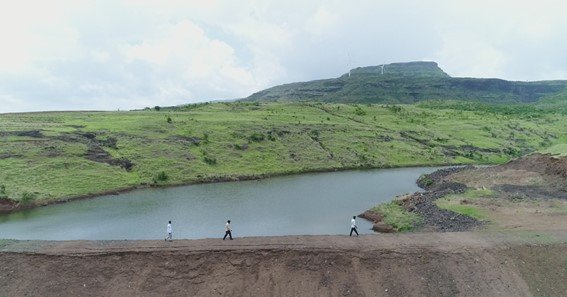Water conservation in villages is essential for ensuring a sustainable water supply and protecting rural communities from the effects of water scarcity. With many villages depending on natural water sources like rivers, wells, and ponds, adopting effective conservation methods is key to sustaining livelihoods and the environment.
The Importance of Water Conservation in Villages
The importance of water conservation in villages lies in its ability to address water shortages, improve agricultural productivity, and ensure access to clean water for daily needs. By conserving water, villages can enhance their resilience against droughts and support community well-being.
Simple Water-Saving Techniques for Rural Areas
1. Rainwater Harvesting in Rural Areas
Rainwater harvesting is one of the most effective water-saving techniques for rural areas. Collecting and storing rainwater for irrigation or household use can significantly reduce reliance on groundwater.
2. Traditional Water Conservation Methods in Villages
Villages have long relied on methods such as step wells, earthen dams, and ponds to store water. Reviving these practices can help manage water more efficiently.
3. Community-Based Water Management
Encouraging community participation ensures effective implementation of water conservation efforts. Villagers working together to maintain water systems and prevent wastage leads to sustainable outcomes.
4. Groundwater Recharge in Villages
Creating recharge pits and planting trees can help replenish groundwater levels, addressing the issue of depleting aquifers in rural areas.
5. Adopting Sustainable Water Practices for Villages
Simple actions like repairing leaks, using water judiciously, and maintaining irrigation systems can contribute significantly to water conservation.
Preventing Water Scarcity in Rural Areas
Water scarcity is a growing concern for many villages. Effective water conservation in villages not only mitigates this problem but also supports agricultural activities, which are the backbone of rural economies. Practices like drip irrigation and mulching help minimize water wastage in farming.
Role of Villagers in Water Conservation
The role of villagers in water conservation is critical. Educating communities about the benefits of conserving water, organizing workshops, and involving them in decision-making processes ensures the success of conservation projects. Villagers can take collective action to revive traditional methods and adopt modern techniques for better water management.
FAQ
1. Why is water conservation in villages important?
Water conservation is vital for ensuring a sustainable water supply, supporting agriculture, and preventing water scarcity in rural areas.
2. What are some traditional water conservation methods in villages?
Traditional methods include step wells, ponds, check dams, and earthen bunds for storing and managing water.
3. How does rainwater harvesting benefit rural areas?
Rainwater harvesting helps collect and store water for irrigation and household use, reducing dependency on groundwater.
4. What is the role of community-based water management?
Community involvement ensures proper maintenance of water systems, equitable distribution, and the prevention of water wastage.
5. How can groundwater recharge be promoted in villages?
Groundwater recharge can be achieved through recharge pits, reforestation, and the restoration of natural water bodies.










